Myanmar not meeting 'minimal standards'
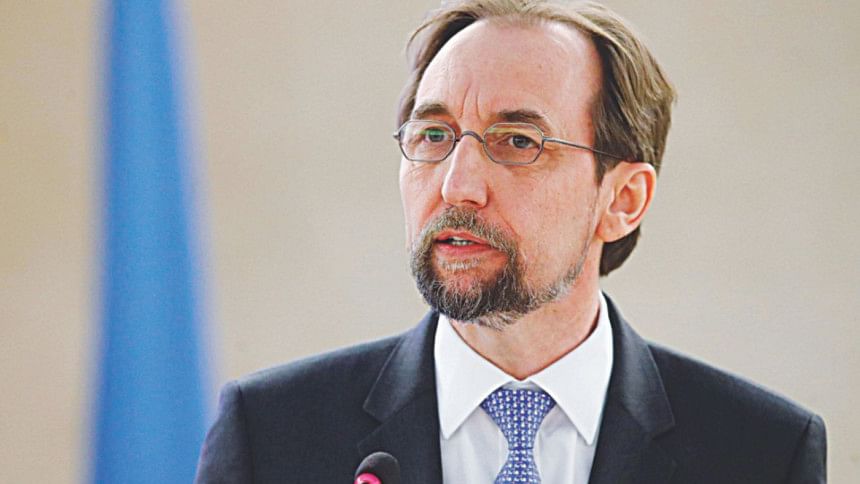
Myanmar has not met the minimum standards in investigating or prosecuting those engaged in the violence against the Rohingyas, said UN High Commissioner for Human Rights Zeid Ra'ad Al Hussein yesterday.
“Although Myanmar has stated that it will investigate allegations and prosecute alleged perpetrators, its actions to date have not met minimal standards of credibility or impartiality,” he said in the opening statement of the 38th session of Human Rights Council yesterday.
“No repatriation should occur in the absence of sustained human rights monitoring on the ground, in the areas concerned.”
Over 700,000 Rohingyas fled Myanmar and came to Bangladesh since the Myanmar military launched a crackdown on the Rohingyas last August. At least 6,700 Rohingyas have been killed in a month since beginning of the crackdown on August 25, according to Doctors without Borders.
The UN has earlier described the violence as a textbook example of "ethnic cleansing".
Zeid Ra'ad Al Hussein yesterday lauded Bangladesh for granting the UN and different aid agencies extensive access regarding the Rohingya refugee crisis.
However, Bangladesh has over 10 outstanding requests for visits by mandate holders to assess the human rights situation in Bangladesh itself.
“I encourage [Bangladesh's] greater engagement, particularly with respect to concerns about the shrinking space for civil society, and allegations of extrajudicial actions by the security forces,” he said.
The United States, meanwhile, welcomed a MoU signed by Myanmar, the UN Refugee Agency and UNDP on June 6.
The MoU is aimed at creating conducive conditions for voluntary, safe, dignified and sustainable repatriation of refugees from Bangladesh and helping to ensure improved and resilient livelihoods for all communities living in Rakhine State.
“This is a positive step,” Heather Nauert, state department spokesperson, was quoted as saying by the Voice of America on June 17.
Effective implementation of the MoU could allow the much-needed humanitarian assistance to reach all affected communities and assist Myanmar in creating the necessary conditions for voluntary return and to support recovery and “resilience-based development” for the benefit of all communities living in Rakhine State, she said.
Amid global criticism of Myanmar's violence, the country signed an agreement with Bangladesh in November last year regarding repatriation of the Rohingyas.
However, many Rohingyas refuse to return to Myanmar, fearing that they might be subjected to renewed crackdown by the military and Buddhist mobs.
Hundreds of refugees on Saturday staged an hour-long protest in Kutupalong. Holding banners and placards, the Rohingyas chanted slogans demanding citizenship, dignified repatriation to Myanmar and security provided by the UN.
Community leader Mohammad Mohibullah told AFP they wanted the UN to "include a Rohingya representative in the repatriation agreement" procedure.
Now that Myanmar signed the MoU with UNHCR and UNDP, the UN agencies are supposed to conduct assessments in Rakhine State, which has been largely closed off to outsiders since the crackdown began.
In his statement, Zeid Ra'ad Al Hussein said there were clear indications of well-organised, widespread and systematic attacks continuing to target the Rohingyas in Rakhine as an ethnic group, amounting possibly to acts of genocide if so established by a court of law.
Also, in Kachin and Shan states of Myanmar, conflict has again escalated since October last year, and longstanding and widely reported human rights violations there include allegations of extrajudicial killings; enforced disappearances; torture and inhuman treatment, UNCHR head said.

 For all latest news, follow The Daily Star's Google News channel.
For all latest news, follow The Daily Star's Google News channel. 


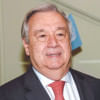
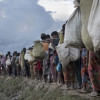
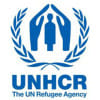
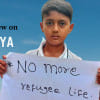


Comments